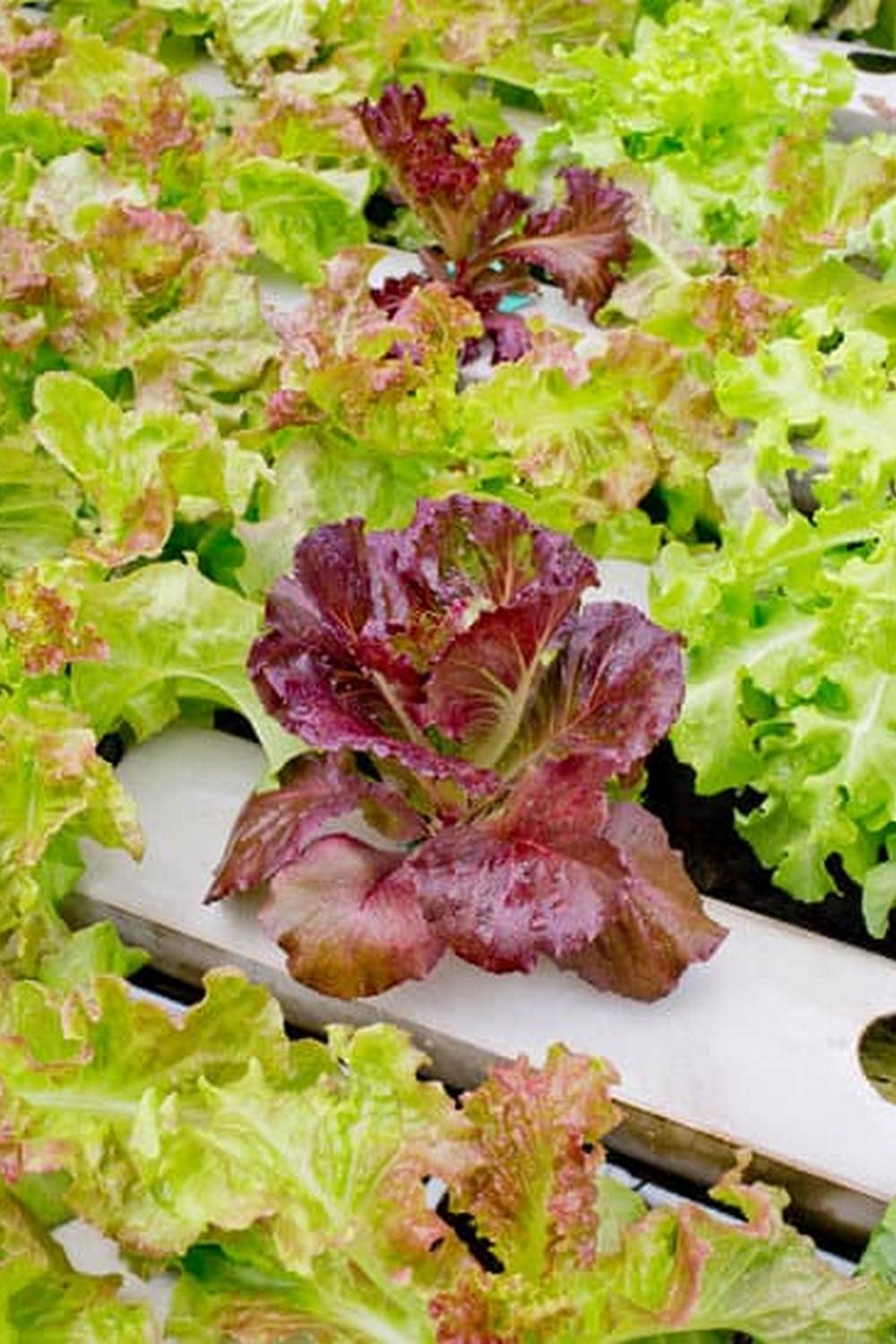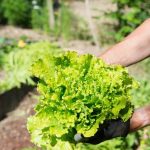As winter approaches, it is crucial to consider the importance of winter ground cover for vegetable gardens. Ensuring that your garden is adequately protected during the colder months can make a significant difference in the health and yield of your crops. Choosing the right winter ground cover can help protect the soil, retain moisture, and prevent erosion, ultimately leading to a more successful and thriving garden.
When it comes to finding the best winter ground cover for your vegetable garden, there are various options to consider. From evergreen shrubs to mulch and cover crops, each type of ground cover offers unique benefits and considerations. By understanding the different types of winter ground cover available, you can make an informed decision about what will work best for your specific garden needs.
In this article, we will explore the various benefits of winter ground cover for vegetable gardens and discuss the different types of ground cover available. Additionally, we will provide insights into choosing the right winter ground cover for your garden based on specific considerations and factors. With our guidance on planting and maintaining winter ground cover, as well as tips for maximizing its benefits, you’ll be well-equipped to ensure a successful and thriving garden throughout the colder months.
Benefits of Winter Ground Cover
During the winter months, vegetable gardens can often be left barren and exposed to the harsh elements. This can result in soil erosion, loss of moisture, and damage to the soil structure. However, implementing winter ground cover for your vegetable garden can offer a range of benefits that will contribute to the overall health and productivity of your garden.
- Protecting Soil: One of the main benefits of utilizing winter ground cover for vegetable gardens is the protection it provides to the soil. By covering the soil with a protective layer, such as mulch or cover crops, you can help prevent soil erosion caused by wind and rain. This is especially important for areas with sloped terrain where water runoff can easily wash away topsoil.
- Retaining Moisture: Winter ground cover also plays a crucial role in retaining moisture in the soil. During the cold season, exposed soil can quickly dry out due to wind and low humidity levels. By covering the soil with a protective layer, you can help maintain moisture levels and ensure that your vegetables have access to adequate hydration throughout the winter months.
- Preventing Erosion: In addition to protecting the soil from erosion by wind and water, winter ground cover also helps prevent surface sealing and crusting. When exposed to heavy rainfall or melting snow, bare soil can form a crust that inhibits water from penetrating into the root zone of plants. By implementing a suitable winter ground cover for your vegetable garden, you can prevent this issue and maintain optimal growing conditions for your crops.
Overall, incorporating winter ground cover for your vegetable garden is essential for maintaining healthy soil structure, retaining moisture, and preventing erosion during the colder months. With proper planning and selection of suitable ground cover options such as evergreen shrubs, mulch, or cover crops, you can ensure that your garden remains protected and primed for success come springtime.
Types of Winter Ground Cover
Evergreen shrubs, mulch, and cover crops are all excellent options for winter ground cover in a vegetable garden. Each option offers its own unique benefits and can contribute to the overall health and success of your garden during the colder months.
Evergreen shrubs provide year-round coverage and protection for the soil. They also add visual interest to your garden and can create a natural barrier against wind and erosion. Additionally, evergreen shrubs can attract beneficial insects that help with pollination and pest control.
Mulch is another effective option for winter ground cover. It helps to retain moisture in the soil, regulate soil temperature, and suppress weed growth. Organic mulches such as straw, leaves, or wood chips also break down over time, adding important nutrients back into the soil.
Cover crops are an essential part of any winter ground cover plan. They help prevent soil erosion, improve soil structure, and add nitrogen to the soil when they are eventually turned under in the spring. Some popular cover crops for winter include rye, clover, and vetch.
Overall, each type of winter ground cover has its own advantages and considerations when it comes to choosing the best option for your vegetable garden. By carefully evaluating your specific needs and goals as a gardener, you can select the most effective combination of evergreen shrubs, mulch, and cover crops to ensure a healthy garden throughout the winter months.
| Winter Ground Cover Type | Benefits |
|---|---|
| Evergreen Shrubs | Year-round coverage, natural barrier against wind and erosion |
| Mulch | Retains moisture in the soil, regulates soil temperature |
| Cover Crops | Prevents soil erosion, adds nitrogen to the soil when turned under in spring |
Choosing the Right Winter Ground Cover for Your Vegetable Garden
When it comes to choosing the right winter ground cover for your vegetable garden, there are several important considerations and factors to keep in mind. One of the key factors to consider is the specific needs of your garden, including the type of vegetables you are growing, the climate in your area, and the overall layout of your garden.
Different types of vegetables may require different types of winter ground cover, so it’s important to take these factors into account when making your selection.
Another consideration when choosing winter ground cover for your vegetable garden is the level of maintenance and care required for each option. Some types of ground cover may require more maintenance than others, so be sure to choose an option that aligns with the amount of time and effort you’re willing to dedicate to your garden during the winter months.
Additionally, it’s important to consider the overall aesthetic and design of your vegetable garden when choosing winter ground cover. While functionality is key, you’ll also want to select a ground cover option that complements the look and feel of your garden space.
In order to make an informed decision about which winter ground cover is best for your vegetable garden, it’s recommended that you seek advice from local gardening experts or resources. They can provide valuable insight into which options are best suited for your specific climate and growing conditions.
| Factors | Considerations |
|---|---|
| Specific Needs | Type of vegetables, climate, layout |
| Maintenance | Level of care required |
| Aesthetics | Complementing garden design |
How to Plant and Maintain Winter Ground Cover
When it comes to planting and maintaining winter ground cover for your vegetable garden, there are a few best practices to keep in mind. The right cover can make all the difference in protecting your soil and ensuring a successful winter garden.
Assessing Your Garden’s Needs
Before selecting a winter ground cover, it’s important to assess the specific needs of your vegetable garden. Consider factors such as the type of vegetables you are growing, the soil composition, and the local climate. Some plants may require more protection from cold temperatures, while others may benefit from extra moisture retention. By understanding your garden’s unique needs, you can choose a cover that will provide the most benefits.
Planting and Maintenance Tips
Once you’ve chosen the right winter ground cover for your vegetable garden, proper planting and maintenance are crucial for its success. When planting evergreen shrubs or trees as ground cover, be sure to space them appropriately to allow for proper growth. Mulch should be spread evenly around your plants to ensure even protection and moisture retention. For cover crops, it’s important to plant them at the right time and follow proper care instructions for optimal growth.
Protecting Your Cover During Extreme Conditions
During periods of extreme cold or heavy precipitation, it’s essential to take extra steps to protect your winter ground cover for vegetable gardens. Adding an extra layer of mulch or hay can provide added insulation to protect against freezing temperatures. For evergreen shrubs, consider using burlap or other protective covers during harsh weather conditions. Monitoring your covers regularly and making adjustments as needed will help ensure their effectiveness in protecting your vegetable garden throughout the winter months.
By following these best practices for planting and maintaining winter ground cover, you can set your vegetable garden up for success during the colder months. Each gardening season brings its own challenges but with careful planning and maintenance, you can create a thriving winter garden that will yield healthy vegetables come springtime.
Winter Ground Cover for Different Types of Vegetables
Different types of vegetables have different needs when it comes to winter ground cover. Understanding the specific requirements of your vegetables will help you choose the right cover for your garden. Here are some common types of vegetables and the best winter ground covers to match their needs:
- Root Vegetables: Root vegetables like carrots, beets, and radishes benefit from a thick layer of mulch to protect them from extreme cold temperatures. Straw or chopped leaves can provide insulation and prevent the soil from freezing, allowing you to continue harvesting even in winter.
- Leafy Greens: Vegetables like lettuce, spinach, and kale thrive under evergreen shrubs that provide protection from harsh winds and frost. Evergreen shrubs act as a natural barrier, creating a microclimate that keeps the soil moist and prevents freezing.
- Brassicas: Crops like broccoli, cabbage, and cauliflower do well with cover crops such as rye or clover. These crops help prevent erosion by holding soil in place and adding organic matter when they decompose. They also suppress weed growth, which can be especially beneficial during the winter months.
Matching the right winter ground cover to your vegetable garden’s needs is essential for a successful winter harvest. By understanding the specific requirements of each type of vegetable, you can ensure that your garden remains productive throughout the colder months.
Remember to consider factors such as temperature tolerance, moisture retention, and erosion prevention when choosing your winter ground cover for different types of vegetables. With careful selection and proper maintenance, you can create an ideal environment for your vegetable garden to flourish during the winter season.
Tips for Maximizing the Benefits of Winter Ground Cover
Winter ground cover for vegetable gardens is essential for maintaining soil health and protecting your garden during the cold winter months. To maximize the benefits of winter ground cover, consider implementing the following techniques:
- Choose the Right Cover: Select a cover that is suitable for your specific vegetables and climate. Evergreen shrubs provide excellent protection, while mulch helps retain moisture and prevent erosion. Cover crops, such as winter rye or clover, can also enrich the soil with nutrients.
- Plant Early: Don’t wait until late fall to plant your winter ground cover. It’s best to plant it in early fall to allow time for establishment before the first frost.
- Maintain Your Cover: Keep your ground cover well-maintained throughout the winter. Remove any debris or dead leaves to prevent mold growth and ensure proper airflow.
Another important technique for maximizing the benefits of winter ground cover is to regularly check for pests and diseases. Inspect your garden frequently, especially during warmer periods in winter, when pests may still be active.
In addition, consider rotating your winter ground cover from year to year to prevent nutrient depletion in the soil and reduce the risk of disease buildup. By implementing these techniques, you can ensure a thriving vegetable garden even during the harshest winter conditions.
Conclusion
In conclusion, implementing winter ground cover for vegetable gardens is essential for maintaining the health and productivity of your garden during the colder months. As discussed, the benefits of winter ground cover include protecting soil, retaining moisture, and preventing erosion. By choosing the right type of cover such as evergreen shrubs, mulch, or cover crops, you can ensure that your vegetable garden remains healthy and ready for the next growing season.
When selecting winter ground cover for your vegetable garden, it’s important to consider factors such as climate, soil type, and the specific needs of your plants. By carefully assessing these considerations, you can choose the most suitable cover that will provide optimal protection and support for your garden.
To successfully implement winter ground cover in your vegetable garden, it’s crucial to follow best planting and maintenance practices. This includes properly preparing the soil, selecting appropriate varieties of cover crops, and regularly monitoring and caring for the vegetation throughout the winter months. By maximizing these techniques and tips for winter ground cover maintenance, you can ensure a thriving garden when spring arrives.
In summary, by understanding the importance of winter ground cover for vegetable gardens and following best practices to implement and maintain it effectively, you can set your garden up for success in both the current season and as preparation for a bountiful harvest in the coming year. With careful planning and attention to detail, your vegetable garden will benefit from winter ground cover and be poised to flourish when warmer weather returns.
Frequently Asked Questions
What Is the Best Winter Cover for Vegetable Gardens?
The best winter cover for vegetable gardens is a thick layer of mulch, such as straw or leaves. This helps to protect the soil and retain moisture during the colder months, preventing erosion and keeping weeds at bay.
What Do You Put in a Vegetable Garden Over Winter?
Over winter, it’s beneficial to put a cover crop in a vegetable garden to protect the soil from erosion and add nutrients back into the soil. Popular cover crops include rye, clover, and field peas, which also help to suppress weeds.
What Are the Best Cover Crops for Winter?
The best cover crops for winter depend on the specific growing region and climate. However, some widely used cover crops for winter include winter rye, hairy vetch, and Austrian winter peas. These crops help improve soil quality during the off-season and provide green manure when turned over in spring.

If you’re looking to get into vegetable gardening, or are just looking for some tips on how to make your current garden better, then you’ve come to the right place! My name is Ethel and I have been gardening for years. In this blog, I’m going to share with you some of my best tips on how to create a successful vegetable garden.





